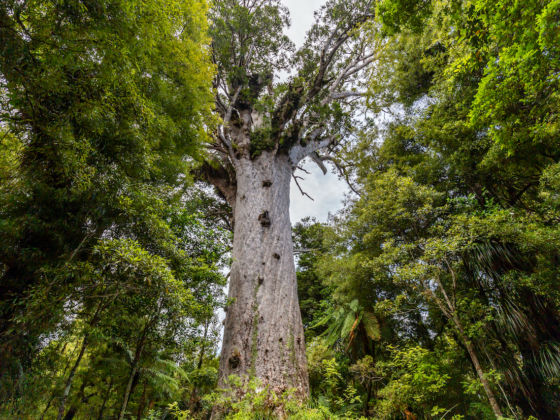Park rangers in Auckland, New Zealand, are attempting to save the native kauri tree from extinction, but their efforts are being thwarted by local hikers. The trees are suffering from a deadly fungal disease called kauri dieback — which can spread by the transmission of soil from hikers’ boots — and in an effort to preserve them, hiking trails in regional parks around Auckland have been closed. Keeping tourists out, however, has proven difficult.


Defiant Hikers Are Killing New Zealand’s Treasured Kauri Trees
Over 10 days around Christmas, authorities found 14 people in prohibited areas. The worst offenders were banned from the parks for up to two years. Perhaps the most distressing part is that the trespassers aren’t acting in ignorance, but defiance.
As reported by The Guardian, Rachel Kelleher, regional park manager for Auckland Council, said, “The types of things we’ve heard is that they understand the issue but believe that they are able to manage themselves appropriately. Because they feel they can manage themselves appropriately, they believe they’ve got a different entitlement to others.”
The battle against kauri dieback will be an uphill one, as the sheer scale of the problem seems insurmountable. The Waitakere Ranges area has almost 40,000 acres of regional park with over 120 miles of trails.
While hiker presence in affected areas has decreased since awareness of the disease became public, prohibitive fences are still being removed, ignored, or vandalized. The disease is so devastating and contagious, one hiker could potentially contaminate an entire forest accidentally.
So if you’re planning to hike in the Auckland region anytime soon, do everyone a favor and don’t ignore the barriers. They’re there for a reason.